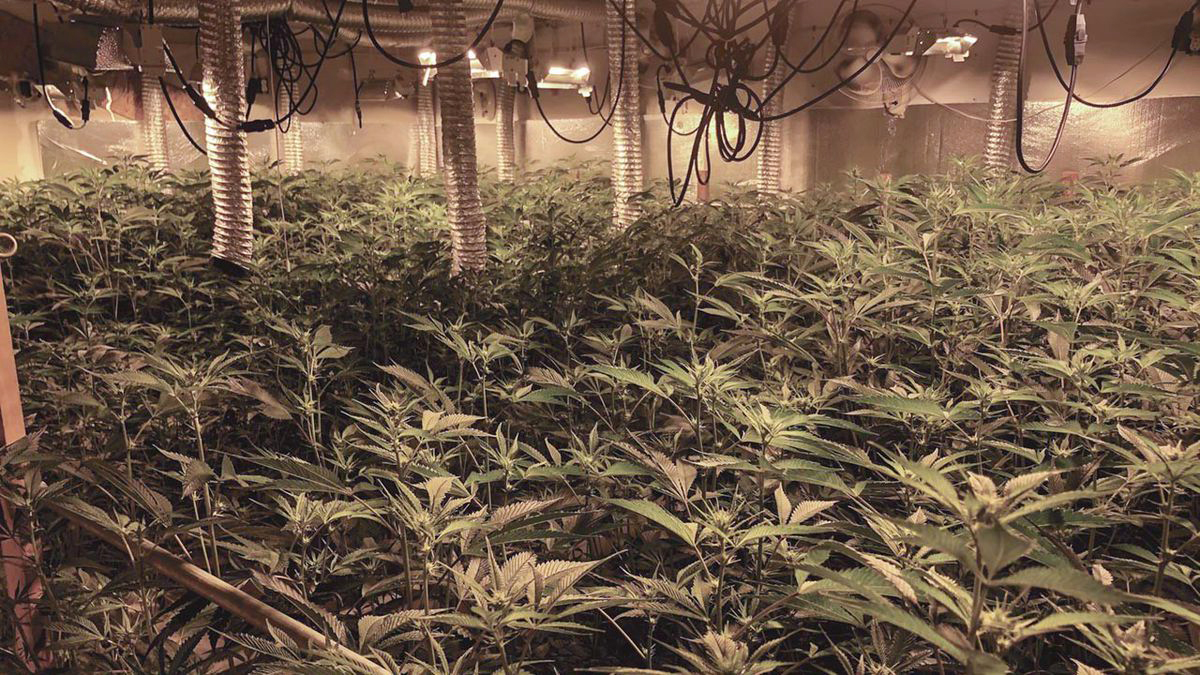California is awash in legal weed, thanks to a massive oversupply. This might sound like a good thing for consumers, who are paying somewhat less at the dispensary. But ultimately, it isn’t, because the way the market has shaped up, substandard pot is favored, and the good stuff remains relatively expensive. The policies that govern California’s pot market—at the state and local levels—encourage large companies to invest in massive grow operations, and threaten to discourage smaller farmers and those interested in cultivating high-quality weed from entering, or staying in, the business.
The state has issued about 7,300 farming licenses. But only about 1,100 licenses have been issued for legal dispensaries and delivery companies. That’s mainly because so many local and county governments refuse to allow cannabis operations to set up shop. More are getting on board, but at a slow pace, and legal pot businesses are still effectively banned in most of the state. Even when dispensaries are allowed, running them is a major challenge, thanks largely to high taxes and stringent—sometimes overly so—regulations, which keeps illicit weed considerably cheaper than the legal stuff, even as wholesale prices dive.
For companies that want to invest in the California weed business, farming looks a lot more attractive than operating dispensaries does. Hence the explosion of pot farms. Hard numbers are hard to come by in this still-nascent business, but California might be producing more than twice as much legal weed as can be sold, according to the Humboldt County Growers Alliance and other sources. Other sources say it’s far more than that.
Last week, I talked to an executive at a mid-sized cannabis distributor who asked not to be named because these issues are so contentious, and he by definition has business partners on both sides of the equation. He confirmed recent reports in publications like Leafly, Forbes and MJBizNews that there is a massive oversupply in the legal market. “I think we’re growing more than three times the amount that will actually be sold in dispensaries,” he said. He added that some of the weed, maybe a lot of it, isn’t actually legal at all. “Illicitly grown cannabis is definitely making it into the legal supply chain,” he said. He said his company is “hyper-careful” about keeping illicit weed out of its facilities, but that’s not always easy. Some farmers, he said, “straddle the markets,” and grow more pot than their licenses allow, sending some of it into the illicit market and some of it to legal distributors. Regulation of this problem, he said, is “lax, to say the least.”
According to MJBizNews, a trade publication, so-called “light-dep” pot—which is grown using a light-deprivation technique that speeds the growth process and allows for more harvests per year—is selling, at the wholesale level, for about half of what it did a year ago in California, and is now down to between $600 and $800 a pound. Full-sun, outdoor-grown weed has seen even steeper declines in wholesale prices, which have plummeted to about $200 a pound in some cases. A year ago, sun-grown weed was selling for $800 and up.
And there seems to be no end in sight. The fear is that many smaller cultivators, who tend to grow better weed, will exit the business. “It’s gonna be a bloodbath,” one distribution executive—also anonymous, but not the same one I talked to—told pot journalist Chris Roberts a week ago.
If so, that will mean more of California’s pot supply will be grown by larger cultivators who enjoy the benefits of economies of scale, and can ride out the market until it eventually reaches equilibrium. That might take years, and at that point, giant companies will dominate the market, and, as a result, substandard pot will dominate dispensaries.
California’s government could address the situation by, for example, limiting how many licenses are issued, or the size of farming operations, as well as addressing the problem of local governments refusing to issue dispensary licenses. But with the ongoing pandemic, wildfires flaring up across the state and a silly and distracting gubernatorial recall election under way, that hasn’t been a priority for either Gov. Newsom or the legislature.
.Hyper-Careful: Illicitly grown cannabis is definitely making its way into the legal supply chain














